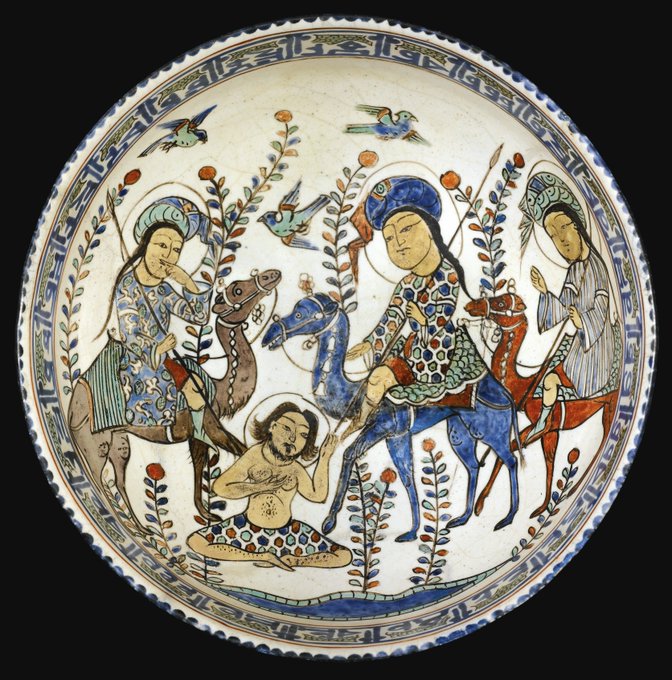

- This event has passed.
CMRS-CEGS Research Seminar: Iranian 250

Prashant Keshavmurthy (McGill University)
“Reading Niẓāmi Ganjavī’s Leylī u Majnūn as a Novel”
Neither the Byzantines nor the Persians had any generic name for the Greek and Persian novels that were composed in the 12th century. Beholden to older (Attic Greek and Abbasid Arabic) models, the taxonomies of literary forms in both geographically adjacent literary cultures lagged behind the innovations of literary practice. Neither did Constantinopolitan literary culture, centered in the courts of the Komnenian dynasty, produce any theoretical reflection on Theodore Prodromos’s sudden revival of the ancient Greek novel in the 1130s, nor did Persian-Arabic rhetoric (balāghat) register Niẓāmi of Ganja’s novelistic retelling of an ancient Arab tale in 1188.
And yet, scholarship on Niẓāmi’s poem has failed to read it as novelistic because it has failed to recognize its parodies and ironizations of multiple genres. This paper sets up a comparison of Theodore Prodromos’s Rhodanthe and Dosikles and Niẓāmī’s Leylī u Majnūn, arguing that both belong to what Mikhail Bakhtin called “the prehistory of novelistic discourse”. Prodromos ironized the ancient Greek novel to induce laughter at rhetorical artifice, his ekphrastic episodes working as reflections on the nature of craft. Niẓāmi turned Majnūn, an Abbasid-Buyid pastoral ideal, into a barbarian locus of authenticity to induce reflection on the commodification of the qaṣīda or panegyric in Seljuq courts. The paper concludes by remarking on the stakes of reading Niẓāmi’s Leylī u Majnūn as a novel and on divergences and convergences in the subsequent careers of the Greek and Persian novel.
Prashant Keshavmurthy is Associate Professor of Persian-Iranian Studies in the Institute of Islamic Studies, McGill University. He is the author of Persian Authorship and Canonicity in Late Mughal Delhi: Building an Ark (Routledge, 2016) and co-translator of Sohrab Sepehri, The Eight Books: A Complete English Translation (Brill, 2022). He is currently at work on a book on the relations between desire and artisanship in the quintet of Nizami of Ganja (d.1209), inaugurator of reflection on this relationship in the Persianate world.
Iranian 250, “Persian Literature in English Translation: Global and Interdisciplinary Perspectives,” taught by Associate Professor Domenico Ingenito (NELC), offers a survey of medieval and early modern Persian literature in English translation. The seminar fosters interdisciplinary conversations among graduate students from a plurality of departments and programs, including Islamic Studies, Gender Studies, History, Art History, Global Medieval and Renaissance Studies, English, and Comparative Literature. All sessions will be held in English, and students with no prior knowledge of Persian are welcome to enroll. Twice a month, international scholars will deliver lectures focusing on their current research trajectories. Key topics: epics and ethnic identity, philosophical poetics and occasion, mysticism and performative queerness, Judeo-Islamic literary intersections, ideals of beauty and lyric performance, literary modernity from Ottoman Turkey to Moghul India, German romantic and modernist appropriations of the Persian poetic canon, etc. In collaboration with the UCLA Program of Iranian Studies.
Monday, April 18 at 9:00 am Pacific Time
Register here for online attendance on Zoom.
